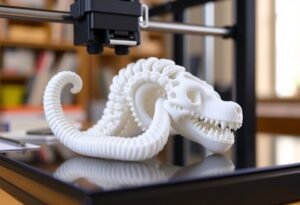The unveiling of the Neo Beta humanoid marks a significant milestone in the evolution of domestic robots. As technology continues to advance, the potential for humanoid robots in everyday life becomes increasingly viable, raising excitement and curiosity among potential users.
Introducing the Neo Beta: A Revolutionary Humanoid Robot
The Neo Beta humanoid robot showcases an impressive blend of technology and design, aimed specifically for home environments. Developed by Norway’s 1X, this robot serves various roles, including tasks typically assigned to butlers. Backed by OpenAI, the Neo Beta utilizes cutting-edge AI capabilities, allowing it to adapt to household needs and interact with family members. The introduction of this robot not only emphasizes the increasing capabilities of humanoids but also reflects a shift towards automation in residential spaces.
Features that Enhance Everyday Life
Designed with functionality in mind, the Neo Beta boasts several innovative features. Equipped with advanced sensors and machine learning algorithms, this robot can perform complex tasks such as organizing items, managing schedules, and even responding to voice commands. These functionalities are aimed at alleviating household burdens, providing an additional layer of convenience for busy families. As the need in modern living continues to rise, the deployment of the Neo Beta could signal a new era of domestic assistance.
The Technology Behind Neo Beta
What sets the Neo Beta apart from previous humanoid robots is its sophisticated technological backbone. The integration of machine learning and AI allows the robot to learn from its environment, improving its efficiency over time. Its bipedal structure enables natural movement within homes, adapting to various spatial constraints. Furthermore, this robot has been built with safety protocols to ensure harmonious interactions with humans, minimizing the risk of accidents or misunderstandings.
A Glimpse Into the Future of Humanoids
The Neo Beta serves as a glimpse into the potential of humanoid technology in everyday life. As society progresses in adapting to automated solutions, it can be anticipated that these robots will increasingly partake in daily routines. By fulfilling roles that ease household responsibilities, the Neo Beta marks a transformational step in the trajectory of household robotics. Future developments could pave the way for even more personalized and intelligent household aides, enhancing life quality for their users.
Ethical Considerations and Challenges
While the advent of humanoid robots like Neo Beta is exciting, it brings forth important ethical considerations. Issues such as privacy, data security, and dependence on technology must be thoughtfully addressed. As robots become more embedded in home environments, ensuring that user trust and safety are prioritized will be crucial. Balancing technological innovations with ethical considerations will shape the future of domestic robots and their integration into daily life.
The Path Ahead for Neo Beta
As the Neo Beta moves towards a limited rollout in homes, the anticipation among potential users is palpable. The journey to integrate humanoid robots into households is just beginning, and the success of the Neo Beta may pave the way for future advancements. This evolution in robotics will likely inspire further research and development, pushing the boundaries of what is possible in household automation, and shaping a new standard for domestic living.
Disclaimer: The information provided in this article reflects the current state of humanoid robot technology and its implications for home use. Technological advancements are ongoing, and details may change as new innovations emerge.





















